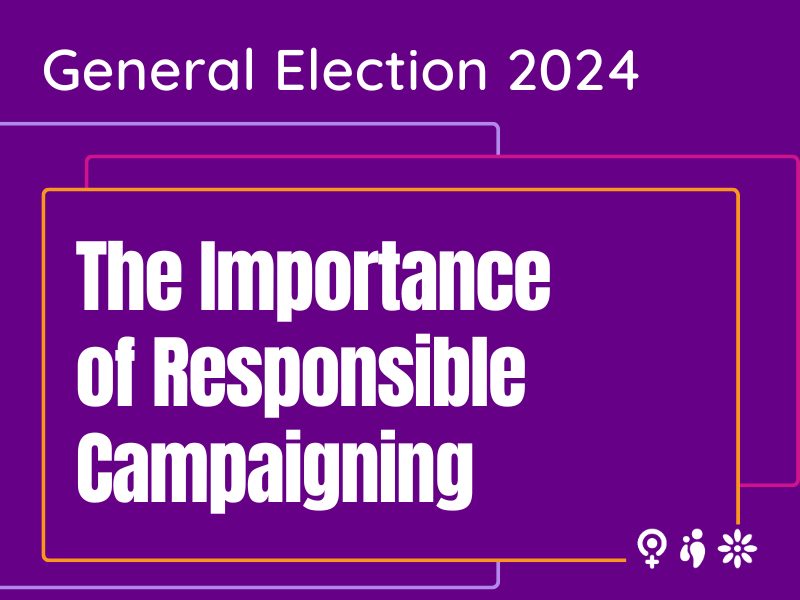
As the UK approaches the General Election, we have been looking at a particularly interesting campaigning season. With a snap election being called, parties understandably are under scrutiny as they pull resources together to create engagement and impact in challenging circumstances with limited time. It’s a time when political parties vie for attention, making promises, present their visions, and engage in debates—all in the hopes of securing votes and shaping the future of the nation. However, amidst the flurry of activity, one crucial aspect often gets overlooked: responsible campaigning.
We believe that responsible campaigning is not just a moral imperative but a cornerstone of democracy. It is the foundation upon which trust, integrity, and inclusivity are built. In this blog, we delve into why responsible campaigning matters and what it entails in the context of the upcoming 2024 General Election.
Respecting Diversity and Inclusion
One of the fundamental principles of responsible campaigning is respecting diversity and promoting inclusion. Political parties must ensure that their messages, policies, and actions are inclusive of all genders, sexual orientations, races, and backgrounds. In the past we have witnessed parties and leaders weaponize communities to garner high traction of opinion under the guise of wanting to project a strong stance, which leads to further marginalizing of vulnerable communities. We have seen examples of the same for migrants, refugees, women, and queer individuals in the past. Hate speech, discrimination, and divisive rhetoric have no place in a democratic society. Every individual deserves to feel valued and heard, regardless of their identity.
Upholding Truth and Transparency
In an age of misinformation and fake news, upholding truth and transparency is more critical than ever. Responsible campaigning requires political parties to be honest and forthright in their communications with the public. Misleading promises, half-truths, and falsehoods only serve to erode trust in the political process and undermine the very foundations of democracy. Voters deserve accurate information to make informed decisions about their future.
Focusing on Real Issues
At its core, responsible campaigning is about focusing on the real issues that affect people’s lives. It means addressing pressing concerns such as domestic violence, healthcare, economic inequality, and social justice. Empty slogans, personal attacks, and distractions detract from meaningful discourse and do a disservice to the electorate. Political parties must engage in substantive debates and offer concrete solutions to the challenges facing our communities.
Supporting Marginalised Groups
Responsible campaigning also entails supporting marginalised groups and protecting their rights. Women, LGBTQIA+ individuals, ethnic minorities, and other vulnerable populations face systemic barriers and discrimination, and it is important that political parties responsibly commit to champion policies that advance equality, diversity, and inclusion. This means listening to the voices of marginalised communities-adequately providing individuals from these communities with a platform, amplifying their concerns, and advocating for their rights at every turn.
Community Engagement and Dialogue
Lastly, responsible campaigning requires active community engagement and dialogue. Political parties must not only speak to the electorate but also listen to their concerns, hopes, and aspirations. Engaging in meaningful conversations with constituents fosters trust, builds bridges, and strengthens democratic participation. It is through dialogue that we can find common ground, forge consensus, and move forward as a society.
In this final week leading to the General Election, we urge all political parties to lead by example and prioritise responsible campaigning. Let us commit to fostering a political environment that values respect, truth, and inclusivity.

